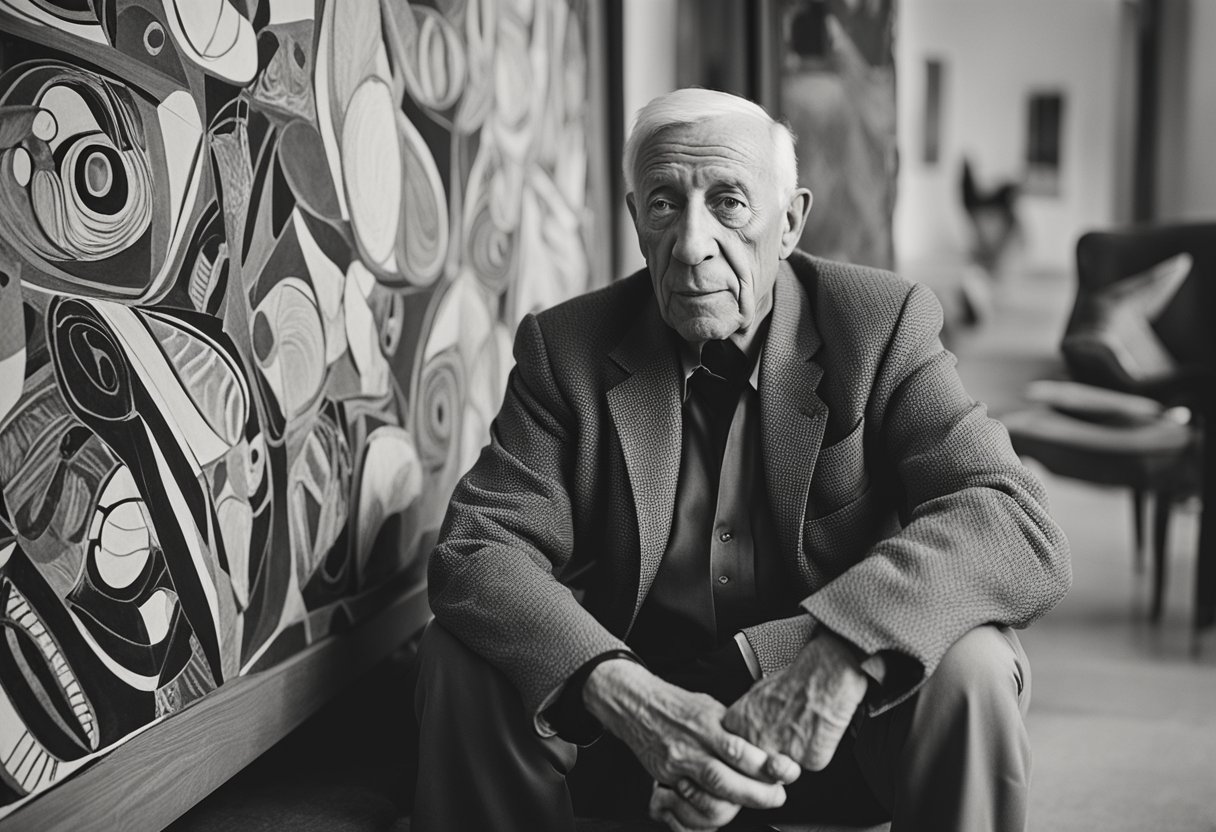Strategies for Thriving
Facing cancer is never easy, but for us male warriors, the journey brings unique challenges and rewards. Adapting to new limitations after cancer requires strength, both physical and mental. Whether dealing with changes in daily routines or tackling emotional hurdles, our experiences shape our paths forward.

After battling lymphoma twice, I can tell you that returning to “normal” life feels like climbing a steep hill. There are moments when we must adjust our expectations and redefine what normal means. From managing side effects to navigating social dynamics, each step is an opportunity to grow.
Recognizing our new reality involves learning to lean on support systems while developing resilience. We can thrive by staying active, engaged, and proactive about our health. No one embarks on this journey alone; together, we can face our new chapters with courage and hope.
Key Takeaways
- Adapting to new limitations requires mental and physical strength.
- Emotional resilience shapes our recovery and quality of life.
- Community support plays a crucial role in our journey.
Understanding Cancer and Its Impact on Life

Cancer changes lives in many ways. It brings both physical and emotional challenges that require resilience and adaptability.
Defining the Cancer Experience
Facing cancer alters every aspect of our lives. The initial diagnosis is a shock that disrupts our routines, relationships, and self-perception. Treatments like chemotherapy and radiation bring side effects such as pain and nausea. Our independence may feel compromised, but developing flexibility and resilience is crucial.
Support networks become essential during this journey. Friends and family help us navigate medical appointments and daily tasks. Peer support groups provide relatable experiences and shared wisdom. Together, we tackle each day with renewed strength, focusing on the positives and the potential for recovery.
The Emotional Toll of Cancer
Emotions run high when dealing with cancer. Stress, anxiety, and depression are every day as we adjust to a new reality. The uncertainty of treatment outcomes can weigh heavily on us. It’s not just the physical pain but the mental strain that tests our limits.
Building emotional resilience is paramount. Seeking professional counseling helps manage these feelings. Mindfulness practices such as meditation improve our mental health. Staying active through hobbies or light exercise offers a sense of normalcy and control. By addressing our emotional needs directly, we ensure a better quality of life as we undergo treatment.
The Physical Challenges Post-Diagnosis
Physical limitations post-diagnosis reshape our daily lives. Fatigue is pervasive, making even simple tasks feel monumental. Pain from surgeries or treatments adds to the discomfort. Muscle weakness might restrict our ability to engage in activities we used to enjoy.
Adapting involves creating new routines. Prioritizing rest and managing energy levels helps us maintain activity without overexertion. Engaging in light exercises like walking or yoga strengthens our body. Nutritional support becomes critical, fueling our recovery and enhancing overall wellness.
The goal is to regain strength and improve our capacity to function independently.
These adjustments redefine our existence and empower us to live purposefully.
Medical Treatment Options and Considerations

When facing a cancer diagnosis, adapting to changes can be challenging. We explore various medical treatments designed to help manage and combat cancer effectively.
Chemotherapy and Radiation
Chemotherapy involves using drugs to kill or slow cancer cells. It can be administered intravenously or orally. This treatment often causes side effects like nausea, fatigue, and hair loss. Regular monitoring and side effect management are essential.
Radiation therapy uses high-energy rays to target and kill cancer cells. It’s localized and often used alongside chemotherapy. Side effects might include skin reactions and fatigue. Both treatments aim to reduce tumor size, alleviate symptoms, and improve overall survival chances.
Innovative Therapies in Cancer Care
Innovative therapies represent breakthroughs in cancer care. Immunotherapy uses the body’s immune system to fight cancer. We’ve seen success in various cancers, utilizing substances like checkpoint inhibitors. Targeted therapy involves drugs targeting specific cancer cell genes or proteins.
Unlike chemotherapy, targeted therapies spare healthy cells, reducing side effects. For instance, targeted therapies inhibit cancer cell growth by blocking signals. These cutting-edge treatments offer potential when conventional methods might not suffice.
Surgery and Post-Operative Care
Surgery aims to remove the cancerous tumor. It’s often the first step when the cancer is localized. Post-operative care focuses on recovery, managing pain, and preventing infections. Physical therapy may be part of rehabilitation, aiding strength and mobility.
The goal is to resume daily activities and maintain quality of life. Psychological support also plays a role in healing. We can navigate recovery with resilience and hope by staying active and engaged.
Every treatment option has its considerations and potential benefits. Discussing these with our medical team helps us make informed decisions about our health journey.
Survivorship and Quality of Life

We explore how resilience and flexibility are essential in adapting to physical or emotional changes that affect independence. Focusing on male cancer survivors, we address the key challenges and offer practical solutions.
Navigating Survivorship
After surviving lymphoma cancer twice, we understand firsthand the journey of survivorship. Daily life changes, including adapting to a new normal, are significant. Physical limitations and chronic pain may impact our quality of life, but developing resilience helps us navigate these challenges.
Support groups and faith communities provide critical emotional support. Healthy lifestyle choices like exercise and balanced nutrition are essential for overall well-being. Embracing self-care allows us to manage stress and emotional health. Knowledge about available resources and being proactive in seeking help aids in improving our long-term outlook.
Managing Recurrence and Long-Term Effects
Dealing with recurrence can be daunting. Understanding that regular follow-ups and screenings are part of our journey helps manage anxiety. Long-term effects, such as fatigue and cognitive changes, can interfere with daily activities.
Collaborating with healthcare providers ensures we receive tailored care plans. Engagement in physical activities helps maintain mobility and reduce pain. Cognitive exercises like puzzles or learning new skills can keep our minds sharp. By taking practical steps, we stay proactive in managing our health and maintaining a good quality of life.
By staying informed and connected, we navigate the complex path of survivorship with strength and resilience.
Emotional Resilience and Psychological Well-being

Facing cancer challenges our mental health, requiring us to build resilience and find psychological balance. We’ll explore coping strategies for emotional distress and achieving acceptance.
Coping with Emotional Distress
Cancer often brings anxiety and depression. We need resilience to manage these emotional burdens. Studies show optimism can reduce tension and boost coping mechanisms. Boosting resilience helps us minimize the distress linked with cancer diagnosis and treatments.
Connecting with others in similar situations provides emotional relief. Male cancer survivors benefit from shared experiences and advice. Support groups and therapy sessions can be lifelines. By engaging in these, we confront our fears and stress in productive ways, enhancing our well-being. Maintaining hope and focusing on tangible steps helps us navigate emotional challenges. Optimism, realistic goal setting, and self-care routines are invaluable in managing emotional load.
Achieving Psychological Acceptance
Acceptance plays a pivotal role in our psychological health. Developing acceptance helps us adapt to new limitations imposed by cancer. Studies suggest that high resilience levels improve psychological outcomes, reducing emotional distress.
Psychological acceptance involves acknowledging our new reality without dwelling on negative emotions. We focus on what can be controlled, set achievable goals, and maintain a positive outlook. Engaging in mindfulness practices can aid in achieving acceptance, promoting mental peace, and reducing negative affect. This strategy helps us face challenges without being overwhelmed by them.
Focusing on achievable steps and support systems fosters acceptance and enhances our psychological well-being.
Advocacy, Education, and the Cancer Community

We understand the challenges men face while battling cancer and adapting to new limitations. Our focus on advocacy and education helps patients and caregivers navigate this difficult journey effectively.
The Role of Support and Advocacy Groups
Support groups have been a lifeline for many of us. They create a community where we can share our experiences and gain strength from others. Advocacy groups bring our concerns to the forefront, ensuring decision-makers and the medical community hear our voices. For instance, many advocacy groups work to provide patients with the resources they need to access quality care, from diagnosis to treatment and beyond.
One study shows that advocacy helps patients understand their rights and access necessary treatments. This community engagement is needed to reduce disparities and ensure equitable healthcare access. These groups also offer mentorship programs where seasoned survivors help guide new patients.
Educational Resources for Patients and Caregivers
Education empowers us to make informed decisions about our health. Numerous resources are designed for patients and caregivers to learn more about cancer treatments, clinical trials, and coping strategies—websites like PubMed offer extensive research articles and meta-analyses, providing up-to-date cancer information.
Hospitals and clinics also have educational workshops and seminars. These sessions cover everything from understanding treatment options to managing side effects. Caregivers receive training on supporting their loved ones while also caring for themselves. Online forums and webinars allow us to ask questions and share experiences.
By utilizing these resources, we can navigate our cancer journey with confidence and community support.
Transitioning to a New Chapter in Life
After a cancer journey, transitioning to a new chapter in life involves embracing changes and redefining our sense of self. This phase is crucial for aligning our goals and values with our new circumstances.
Redefining Purpose and Priorities
Surviving cancer requires us to reassess what matters most. Living through and beyond this challenging time pushes us to shift our focus. We value moments of joy, relationships, and personal growth more deeply. As we step into this new chapter, we must set new goals that align with our current capabilities.
We might find ourselves drawn to activities we have never considered before. Hobbies like painting, gardening, or joining a local sports team can offer new purpose. It’s also beneficial to engage in activities that involve helping others. Volunteering can be a fulfilling way to give back and find renewed energy.
Balancing our physical and emotional well-being becomes essential. Regular check-ups and mental health support are crucial. By focusing on what brings us fulfillment, we reshape our lives meaningfully. This transformative period encourages us to streamline our priorities and embrace our new sense of purpose.
Embracing a Changed Identity
Our identity can change significantly after such an experience. Recognizing this new self is a step toward full acceptance of our journey. Many of us might struggle initially, but understanding that change is part of growth can be enlightening.
We must acknowledge our resilience and strength. Celebrating small victories and progress helps build confidence. Sharing our stories with other survivors strengthens community bonds and reaffirms our warrior identities.
It’s also valuable to explore new interests and skills. Engaging in physical activities suitable for us, like yoga or walking, can boost self-esteem. Acknowledging the limitations and finding adaptive ways to pursue passions contributes to a well-rounded identity.
By embracing changes and focusing on what we can achieve, we redefine what’s possible. This period is a testament to our adaptability, making space for fresh perspectives. Engaging in meaningful practices helps us embrace our new identities and thrive in this new chapter.
Continued Care and Monitoring
Continued care for male cancer warriors like us includes not only monitoring for recurrence but also maintaining our overall health and well-being. Knowing what steps to take can help us stay on top of our health and reduce fears related to cancer coming back.
Follow-up Care and Monitoring for Recurrence
Regular follow-up care is crucial. We need to schedule consistent appointments with our oncologists. These visits will often involve physical exams, imaging tests, and bloodwork. Tracking body changes and promptly reporting new symptoms can make a big difference. Our doctors might use imaging scans such as CT, MRI, or PET scans to check for signs of cancer returning. Blood tests might measure tumor markers to detect recurrence early.
Clear communication and detailed information from our healthcare team are essential. We should ask about the frequency of necessary tests and any potential signs to watch out for. Additionally, joining a support group can provide emotional backing and valuable insights from others who are going through the same experiences.
Living with No Evidence of Disease (NED)
Living with No Evidence of Disease (NED) means regular check-ups to verify that the cancer has not returned. NED status doesn’t mean we let our guard down. Regular screening and healthy habits are critical. Eating a balanced diet, staying active, and managing stress improve our general health and survival rates.
Discussing ongoing symptoms or health changes with our doctor helps catch any issues early. Even when living with NED, addressing the psychological impact is beneficial. This includes managing the fear of cancer recurrence. Activities that improve mental health, like therapy or mindfulness practices, can be very effective.
Maintaining regular appointments with healthcare providers and following their guidance gives us the best chance at long-term health and peace of mind.
The Debate
When facing cancer, men often hear about being warriors in the fight. This language can inspire, but it also has its critics.
Some argue that the “warrior” metaphor suggests we should suppress vulnerability. Cancer is a complex challenge that involves more than just fighting. We need to acknowledge the emotional toll it takes.
Cancer metaphors, like “warrior,” can be motivating but may also imply failure if a patient does not recover. This view is seen in how cancer outcomes are perceived.
We have to consider that treatment success does not come from fighting alone. It involves understanding our bodies and working with medical professionals. As men, we should be ready to seek help and not just rely on toughness.
A study by the University of Oxford shows that some traits may be biologically ingrained, but recognizing our limits is equally critical. Real strength comes from balance.
We can adapt and find new ways to live within our limitations. Embracing resilience and flexibility is crucial in this journey.
Navigating cancer is not just about battling it—it involves a team effort. Collective support from loved ones, doctors, and fellow survivors creates strength.
Understanding different opinions on the “warrior” narrative helps broaden our approach. Let’s acknowledge the value of emotional support alongside physical strength. This balance ensures a more compassionate and effective path through cancer recovery. -T
Final Thoughts
Living through cancer has taught us unmatched resilience and the power of adaptability. We’ve faced new limitations, both physical and emotional, altering our independent lives. Dealing with these changes requires finding flexible solutions and remaining patient with ourselves.
Developing new skills, like managing daily routines post-treatment, is part of our journey. Whether learning to live with an ostomy or adjusting to fatigue, we find ways to keep moving forward.
Connecting with other men who have faced similar battles provides powerful encouragement. Sharing our experiences can lift each other’s spirits and offer real-life tips for coping. Together, we form a supportive community.
It’s essential to find hobbies or sports that can be adapted to our new physical abilities. Whether it’s a gentle round of golf or a relaxing walk, staying active helps maintain our physical and mental well-being.
Our journey reshapes our perspective on life. We appreciate small victories and celebrate each step forward. This mindset brings hope and resilience, helping us face each day with renewed strength.
Remember, we are stronger together. We can thrive despite cancer’s challenges by embracing flexibility and supporting one another. Our journey is an evolving process filled with opportunities to grow and inspire others.
Frequently Asked Questions
After cancer treatment, we often face new challenges and questions. Below are practical answers from my experience and trusted resources to help you navigate this journey.
How can men cope with new physical limitations after cancer treatment?
Adjusting to physical limitations requires patience and determination. Gentle exercises like walking or swimming help maintain strength and flexibility. We should consult our doctors about safe activities.
What are the most effective ways male cancer patients handle emotional changes?
Emotional changes can be tricky. Open communication with loved ones and joining support groups provide a powerful emotional backbone. Professional counseling also offers significant relief.
What strategies help in adapting to lifestyle changes during cancer treatment?
Maintaining a balanced diet and staying hydrated is vital. Planning meals and choosing nutrient-rich foods boost our energy levels. Staying positive by setting small, achievable goals keeps us motivated.
How to offer support to someone diagnosed with cancer without being overbearing?
It’s critical to listen more than we talk. Offering practical help, such as cooking meals, driving to appointments, or simply being present, shows genuine care.
What resources are available for men battling cancer to manage stress and mental health?
We can explore mindfulness practices such as meditation or deep breathing exercises. Websites like NOVA Online provide valuable information. Connecting with other survivors through community programs also gives a sense of solidarity.
What are the common side effects of cancer treatments in men, and how to prepare for them?
Common side effects include fatigue, nausea, and hair loss. We should ask our doctors about medication to manage these effects. Keeping a journal of symptoms helps track and address them promptly.
